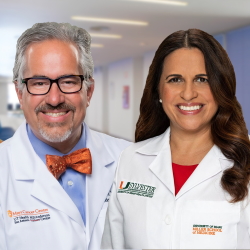The Belmont Report: Protecting People in Clinical Trials
Clinical trials advance cancer research and help current and future generations find new treatments for disease. However, when patients enroll in a clinical research trial, they want to know that they are safe and that the trial won’t do more harm than good.

Enter the Belmont Report, a set of fundamental ethical principles and guidelines that assist researchers in resolving ethical principles when conducting research involving human subjects. In this article, we look at the history and content of the Belmont Report and its implication on cancer research.
History of the Belmont Report
The Belmont Report was created due to several contributing factors that made the need for a code of ethics in medical research using human subjects essential.
The extreme human rights violations during World War II, followed by the events of the Tuskegee study, prompted Richard Nixon to create the National Commission for the Protection of Human Subjects of Biomedical and Behavioral Research. This commission ultimately produced the Belmont Report.
The Nuremberg Code
Following the horrors of World War II and the information unraveled in the Nuremberg Trials, the international scientific community discovered a need for a code of ethics when conducting research on human subjects.
The Nuremberg Code, published in 1947, was created as a guide to satisfy moral, ethical, and legal concepts surrounding human experimentation. The document laid out 10 essential points for conducting ethical research. Amongst other things, the points included the following:
- Requirement for voluntary consent
- Qualifications for researchers conducting experiments
- The importance of ensuring the benefits of an experiment outweigh the risks
- Participants’ right to terminate the experiment
- Investigators duty to terminate an experiment if they believe it will result in harm to the subjects
While the Nuremberg Code was a good start for providing ethical guidance in conducting human research, it soon became apparent that further action was needed.
“Trials happen in early-stage disease. They can be as a first-line treatment, when someone is first diagnosed, and also with advanced disease, where the goal of the trial is how to improve the standard treatment either by adding new medication or changing medications completely based on data from studies in advanced disease.”
Dr. Cercek | The Latest in Colorectal Clinical Trials
Public Health Services (PHS) Tuskegee Study
From 1932 to 1972, the United States Public Health Service (PHS) conducted a study to observe the effects of syphilis if it remained untreated. During this period, the PHS observed the impacts of syphilis on nearly 400 black men.
The main problem of the study was that the patients were not informed of the true intent. In fact, they were blatantly lied to as they were told that they would be treated for the disease in return for meals, medical exams, and burial insurance. However, throughout the study, patients were denied access to penicillin, the treatment for syphilis.
The lack of information provided and disregard for the patients’ well-being led to a class action lawsuit and increased scrutiny of human subject protection policies.
National Research Act (1974)
The National Research Act of 1974 was passed due to the public attention surrounding the PHS Tuskegee Study. The Act created the National Commission for the Protection of Human Subjects of Biomedical and Behavioral Research, which was charged with developing a code of ethics and conduct for research involving human subjects.
While the Nuremberg Code provided the guidelines for ethical human subject research, the National Research Act codified those requirements into US law. The National Commission produced the Belmont Report in 1979, which remains one of the most important reports in protecting the safety of human subjects in medical research.
The 3 Basic Ethical Principles
The main product of the Belmont Report was the publication of three basic ethical principles to help guide and resolve ethical problems surrounding research with human participants. The three principles are:
- Respect for Persons: All people should be respected. This includes children and individuals who may not be capable of making informed decisions due to mental or physical disabilities.
- Beneficence: Research should not intentionally harm humans. In addition, researchers should look to maximize the potential benefits of a study and minimize the potential risks.
- Justice: The benefits and burdens of research should be distributed fairly.
Although the Belmont Report was published almost half a decade ago, its guiding ethical principles still remain relevant today. In the next couple of sections, we will look at how these guiding principles have been applied to the way clinical trials are managed.
“A big part of what we do is help to educate and really clarify what clinical trials are.”
Leah Szumita, Clincal Trial Support Director at The LLS| Watch “What is a Clinical Trial Really?“
Applications of the Belmont Report
The three ethical principles are phenomenal foundational ideas; however, they are just that: ideas. Understanding how the idea translates to actual clinical trials is essential for research participants to feel safe agreeing to participate in trials.
Here are a few of the ways that the three principles have been applied to research:
- Respect for Persons -> Informed Consent: Patients have the right to make the decision to participate or not to participate in a trial. To consent to participate in a trial, potential participants must receive information about the trial, be able to comprehend the impacts of a trial, and voluntarily agree to the trial. All three factors must be present to provide informed consent.
- Beneficence -> Assessment of Risks and Benefits: Researchers need to thoroughly examine the benefits and potential risks of a study. Without clear supporting evidence that a trial will do more good than harm, the study can’t move forward.
- Justice -> Selection of Participants: Researchers are required to implement a fair and equitable method for selecting study participants. When possible, participants should be from a diverse set of backgrounds.
These three applications have become standard practice in conducting research. All three applications should be clearly evident in all trials.
Institutional Safeguards
Researchers can generally be trusted to have the safety and well-being of their patients in mind. However, research and academic institutions have created several fail safes to ensure that patients are well protected.
Institutional Review Boards
The Institutional Review Board (IRB) is a group specifically formed for the purpose of ensuring that people participating in clinical trials are protected and that all federal laws are followed. Before they are formed, IRBs are approved and overseen by the Office of Human Research Protections.
Before a clinical trial can start recruiting patients, they must receive approval from an IRB. The trial is then continuously overseen by the IRB to ensure compliance.
Data Safety Monitoring Boards
A Data Safety Monitoring Board (DSMB) is a panel of experts that are typically brought on during a phase III clinical trial. The DSMB observes the progress of a clinical trial and stops it if:
- It becomes clear the treatment is much better or much worse than the current standard of treatment.
- There are extreme safety concerns that make it obvious that the risks of the trial outweigh the benefits of the trial.
Clinical Investigators
While both the DSMB and IRB are not directly involved with the study, the clinical investigator, sometimes referred to as the principal investigator, is directly overseeing all aspects of a clinical trial.
The clinical investigator is responsible for ensuring that all trial participants understand any risks involved with participating in a study and for ensuring their safety throughout the trial.
“Never think of trials as being exposed to random things. They’re very well thought out. More often than not, you have a high level of reassurance.”
Dr. Rafael Fonseca | The Latest on Multiple Myeloma
Are Clinical Trials Safe?
As a result of the Belmont Report and the resulting events that followed, clinical trials have become much safer for participants. Doctors are required to inform patients of all the potential risks of enrolling in a clinical trial and ensure that the potential benefit of the trial outweighs the risks.
While it’s impossible to guarantee that a trial will be completely safe, patients can be assured that they’ll have all the information they’ll need to make the decision that is right for them.
Learn More About Clinical Trials
Sources:
American Cancer Society. Protecting People in Clinical Trials. Accessed at https://www.cancer.org/cancer/managing-cancer/making-treatment-decisions/clinical-trials/what-you-need-to-know/protection-for-study-participants.html on October 15, 2023
Columbia University. Ethics and the IRB. Accessed at https://www.tc.columbia.edu/institutional-review-board/irb-blog/2020/the-history-of-the-belmont-report/#:~:text=The%20Belmont%20Report%2C%20a%20founding,a%20rich%20history%20of%20development.&text=“Good%20judgment%20comes%20from%20experience,experience%20comes%20from%20poor%20judgment.”&text=The%20Institutional%20Review%20Board%20(IRB,for%20research%20with%20human%20subjects on October 15, 2023.
HHS. The Belmont Report. Accessed at https://www.hhs.gov/ohrp/regulations-and-policy/belmont-report/index.html on October 15, 2023
University of North Carolina. Nuremberg Code. Accessed at https://research.unc.edu/human-research-ethics/resources/ccm3_019064/ on October 15, 2023
ERAU. History of Ethics. Accessed at https://erau.edu/-/media/files/university/research/irb-history-of-ethics.pdf on October 15, 2023
FDA. Institutional Review Board Frequently Asked Questions. Accessed on https://www.fda.gov/regulatory-information/search-fda-guidance-documents/institutional-review-boards-frequently-asked-questions October 15, 2023.








